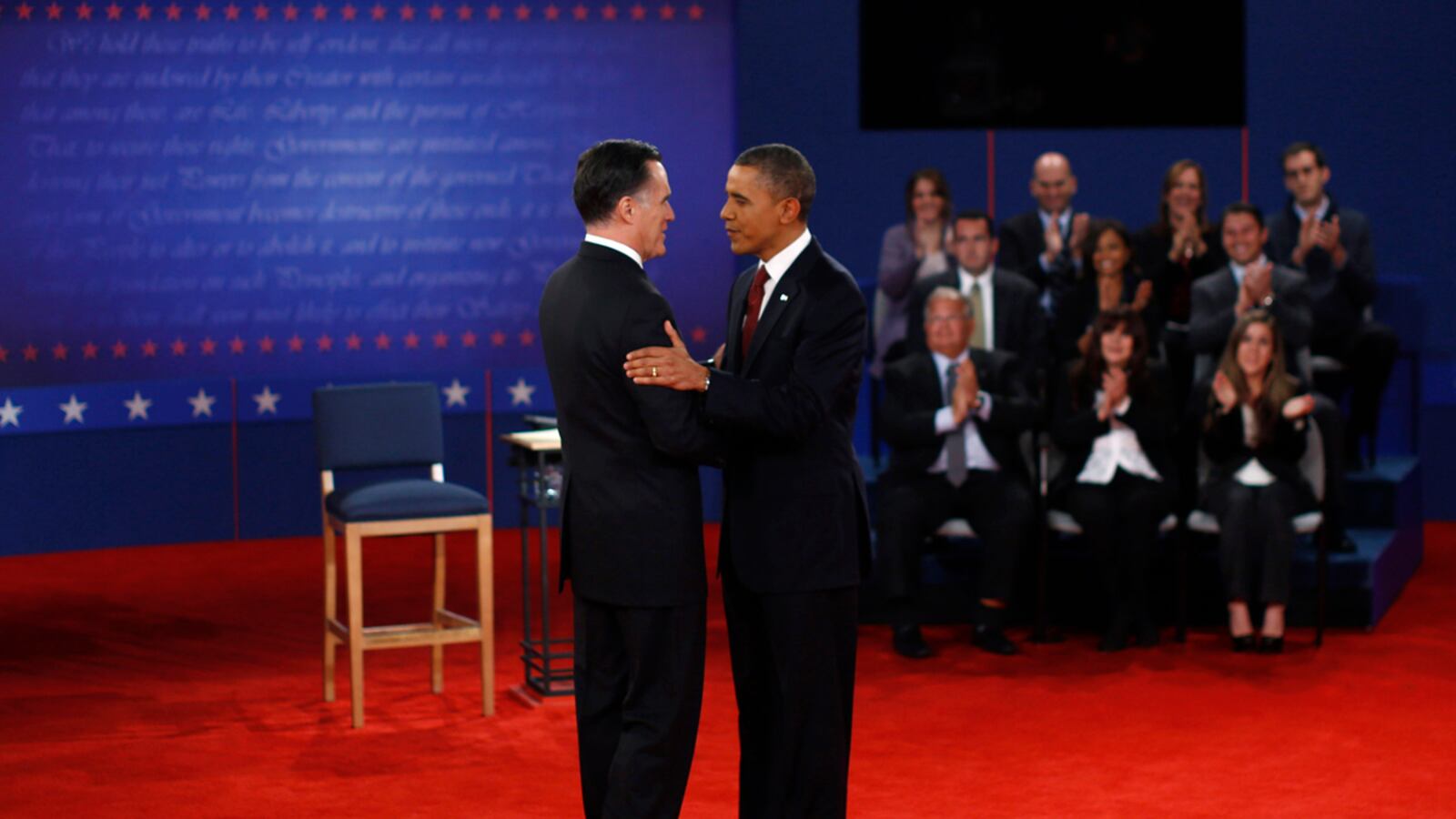A couple of decades ago, I remember my family gathering around the television on Friday nights to watch weekly boxing matches. Last night’s debate had that same feel. The buildup was that the challenger had bested the reigning champ in the first bout and now the champ had to make a comeback. He had to be more aggressive and show some fight. And if that was the expectation, last night didn’t disappoint.

The second presidential debate proved to be more of a brawl than a debate. If the president’s first debate strategy was “Rope a Dope,” then his second debate strategy was keep punching, hoping to land something. The president was stronger, and Governor Romney was less measured in last night’s debate than in their first meeting. And both men mixed it up early and often as if they were surrounded by a ringside crowd rather than a town-hall crowd. The audience’s questions only served as the “bell” to start each round, as neither Obama or Romney ever really attempted to connect with the questioner or the audience and instead focused on regularly landing body blows. So the decision? Obama on points, but not the decisive knockout that the president needed to turn the momentum from the first debate. And lost in the donnybrook were voters who sought an extension of the substantive discussion of issues started in the first debate.
The president was able to throw Governor Romney off his “game” early in the debate, putting Romney on defense over the auto bailout. Governor Romney began a pattern of complaining about time limits, interrupting both the moderator and the president with rules protests that would last throughout the debate and act as his own self-induced distraction to the calm, confident, and persistent style that served him so well in the first debate. Instead of the withering attack on the president’s record that put Obama on his heels in the first debate, Governor Romney opted for badgering the incumbent on energy permits and licenses, worrying about the president’s pension and backtracking on answers to topics that had already been bypassed.
The most decisive blow of the night was landed by President Obama in the exchange over Libya. While the facts are on Governor Romney’s side, the attack was mitigated over the dispute of the president’s word choice in the White House Rose Garden the day after the attack in Benghazi. And the president pounced in a moment of carefully planned righteous indignation on the mention that any member of his “team” might have played politics or mislead with any information on the attack. Lost in the exchange was a meaningful discussion of deficiencies in intelligence, why it took so long to properly label the event itself as a terrorist attack, and what caused the breakdown in security at the consulate. Instead, the president admitted the ultimate responsibility rests with him (an admission lost on Governor Romney) and looked presidential in answering the attack from his Republican challenger.
The president may have won this individual battle, but Governor Romney continued winning the war over the economy that turned in his direction in the first debate. Governor Romney continued to stay on offense on the economy with a message that is resonating with voters. While casting less vision in the cacophony, it still is in contrast to the lack of vision for an Obama second term. Romney’s best moment came in defending his tax plan, trumping the president on how his would better serve the middle class, and again when responding to the president’s answer to the question of what the president had done to earn an audience member’s vote. But why is it that Romney is winning that argument? Potentially because a majority of Americans continue to feel like we are in the ditch of an economic decline and that we’re not getting out very quickly. And possibly because voters are just now getting to know who Governor Romney is and that he has a plan for the economy.
Tuesday night may have belonged to the president on debating points, but it is doubtful that this debate will do much to change the narrative of the campaign from the first debate as long as Governor Romney continues to focus on the economy. It may be that voters are smart enough to separate the winner of the debate from the person they think can best get the country out of the economic ditch.






